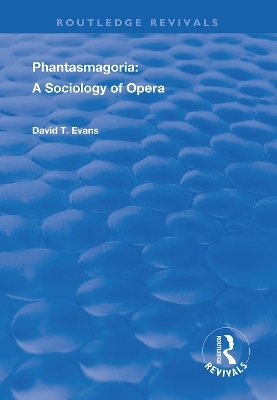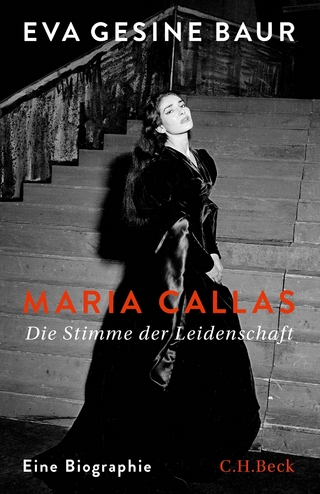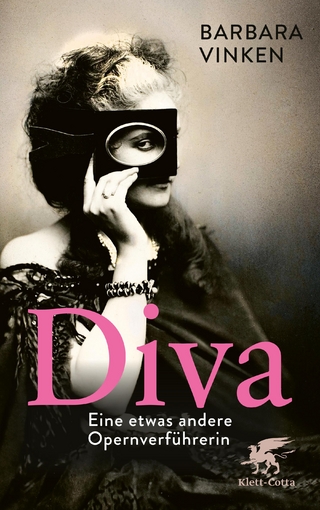
Phantasmagoria
Sociology of Opera
Seiten
2020
Routledge (Verlag)
978-1-138-35359-6 (ISBN)
Routledge (Verlag)
978-1-138-35359-6 (ISBN)
- Titel z.Zt. nicht lieferbar
- Versandkostenfrei innerhalb Deutschlands
- Auch auf Rechnung
- Verfügbarkeit in der Filiale vor Ort prüfen
- Artikel merken
First published in 1999, this original and entertaining sociological study takes a comprehensive and critical view of opera as unique cultural artefact as loss making ‘industry’, as institution with a ‘museum’ culture, and as consumed commodity of rare distinction and elaborate ritual.
Specific chapters deal with opera within the contexts of musicological analysis, auratic art and fetishized taste: opera as business and as ‘museum’: singers’ opera: producers’ opera and audiences’ opera. There is also a chapter on ‘opera’: popular, commercialised fragments of opera outside the opera house, consumed by and through all manner of reproduced means: CD, video, Three Tenors concerts: film and TV soundtracks: advertising jingles etc.
Despite the supposed popularisation and successful commercial exploitation of ‘opera’ during the past decade or so, this study concludes that opera remains an art-form, institution and ritual of relative inaccessibility and exclusiveness. The commercial interest in and profitability of ‘opera’ do not translate into new ‘popular’ audiences in the opera house.
The increased dependency of opera companies on corporate funding in the face of retreating government subsidies may have brought a new ‘elite’ audience into the expensive seats, pandered to by the introduction of surtitles etc., but the traditional ‘elite’ has succeeded in closing down entry to opera in other select venues where opera continues to confirm and maintain their select identity and prestige of their life-style.
Specific chapters deal with opera within the contexts of musicological analysis, auratic art and fetishized taste: opera as business and as ‘museum’: singers’ opera: producers’ opera and audiences’ opera. There is also a chapter on ‘opera’: popular, commercialised fragments of opera outside the opera house, consumed by and through all manner of reproduced means: CD, video, Three Tenors concerts: film and TV soundtracks: advertising jingles etc.
Despite the supposed popularisation and successful commercial exploitation of ‘opera’ during the past decade or so, this study concludes that opera remains an art-form, institution and ritual of relative inaccessibility and exclusiveness. The commercial interest in and profitability of ‘opera’ do not translate into new ‘popular’ audiences in the opera house.
The increased dependency of opera companies on corporate funding in the face of retreating government subsidies may have brought a new ‘elite’ audience into the expensive seats, pandered to by the introduction of surtitles etc., but the traditional ‘elite’ has succeeded in closing down entry to opera in other select venues where opera continues to confirm and maintain their select identity and prestige of their life-style.
David T Evans
1. Opera as Music, Text, Drama and Theatre. 2. Opera as Fetish and Taste. 3. The Opera Industry. 4. The Opera Museum. 5. Singers’ Opera. 6. Producers’ Opera. 7. ‘Operatic’ Commodities. 8. Audiences’ Opera.
| Erscheinungsdatum | 03.02.2020 |
|---|---|
| Reihe/Serie | Routledge Revivals |
| Verlagsort | London |
| Sprache | englisch |
| Maße | 152 x 219 mm |
| Gewicht | 700 g |
| Themenwelt | Kunst / Musik / Theater ► Musik ► Klassik / Oper / Musical |
| Sozialwissenschaften ► Soziologie | |
| ISBN-10 | 1-138-35359-0 / 1138353590 |
| ISBN-13 | 978-1-138-35359-6 / 9781138353596 |
| Zustand | Neuware |
| Haben Sie eine Frage zum Produkt? |
Mehr entdecken
aus dem Bereich
aus dem Bereich


